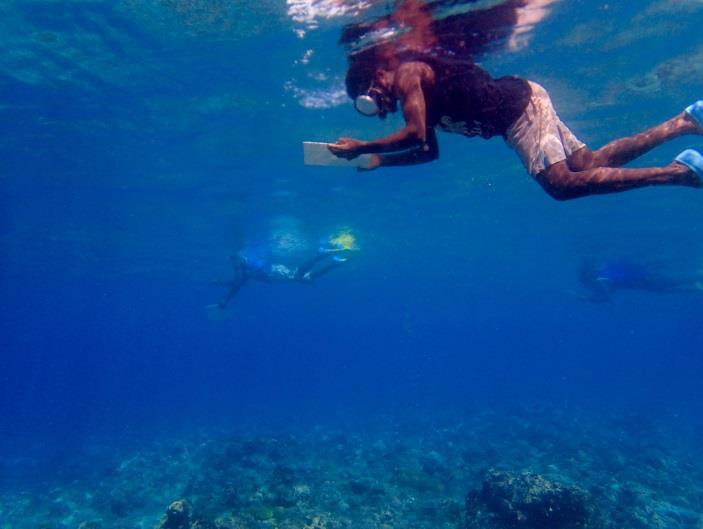Chris Bone
Other projects
We help the women of Dolav, Ontar and Qetegaveg villages develop a sustainable income from making Virgin Coconut oil to take pressure off their marine resources

This current project aims to build upon previous work, in a number of communities; Pwetevut Bay (the villages of Dolav, Ontar, and Qetegaveg) on Gaua Island and in the villages of Vatop, Tevetwot and Ambek on Vanua Lava in Northern Vanuatu. All these communities are very isolated, have very little income and diminishing marine resources.
The main objectives are to continue to support the community Tabu (MPA) areas and if requested assist with the registration process of Community Conservation Areas (CCAs). Building community support for the Tabu (MPA) will help ensure the reefs are protected for future generations and provide greater resilience for current fishing effort. Across the different communities we will deliver marine education programs, Reef Guardian training and climate change workshops. Furthermore, we will implement a Virgin Coconut Oil (VCO) sustainable livelihood program. We will provide the training and equipment required to produce VCO and purchase the oil from the villages. We have received letters requesting support for this from three villages on Gaua and verbal requests from the villages in Vanua Lava. This initiative will provide an export income, and take the pressure off their declining resources. The income derived from the VCO program is expected to be sufficient to meet basic needs such as school fees and occasional food purchases but will not be large so will not have negative socio-economic implications.
If requested by the villages will follow up with the Environment department in Port Vila, Luganville and Sola (the provincial government offices for Torba) on the registration of the CCA for the Pwetewut Bay villages. We shall assist the villages to produce marine management plans that will help protect their tabu areas, thus increasing their marine resources over time. They will be more knowledgeable about their resources and how to protect them against the effects of climate change and they will have earned a small income. By working exclusively with women’s cooperatives we ensure that it’s the women who have control of the income.